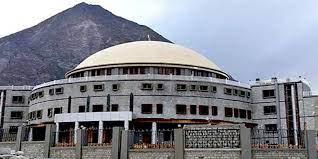The Gilgit Baltistan Empowerment and Self-Governance Order of 2009 was superseded by the Gilgit Baltistan Order of 2018[1], which governs the Gilgit Baltistan area of Pakistan. But there are a lot of problems with the 2018 presidential directive. The two main ones are that it was not created with input from the local population and that it is completely protected from changes made by the local Legislative Assembly or the higher courts in Great Britain.
Background
Formerly known as the Federally Administered Northern Areas (FANA), Gilgit-Baltistan (GB) is an independent area in northern Pakistan with a unique political structure and election procedures. The area, which was originally a part of the princely state of Jammu and Kashmir, is disputed by India, Pakistan, and the local population. It was unified into the Northern Areas in 1970 and placed under the administrative jurisdiction of the Ministry of Kashmir Affairs and Northern Areas.
The contentious citizenship clause
The Gilgit-Baltistan Order of 2018 ultimately fails to create a legal relationship between the state of Pakistan and the area of GB, and all other concerns pertaining to the region's rights stem from this lack of constitutional and legal legitimacy. Many people protested the Order, saying it was a step back from the previous Order of 2009 and too State-centric.
Legislative Assembly elections
Chief Minister after the previous government, led by the Pakistan People's Party, concluded its five-year term. Elections to the assembly are required to be place within 60 days of the term of assembly expiring, as stated in Section 35(4) of the Order. However, as of January 14, 2015, the Election Commission of GB (ECGB) has not yet released the election calendar.

